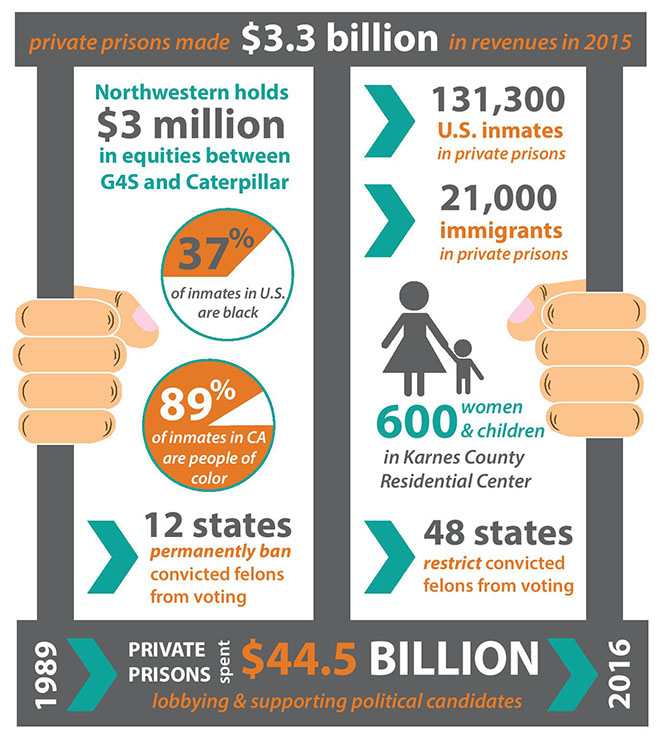Mariame Kaba came to campus Thursday night as the first in Unshackle NU’s speaker series about the Prison Industrial Complex. Kaba previously worked in Northwestern’s sociology department and is the founder of Chicago-based Project NIA, dedicated to ending youth incarceration.
"My work has always involved young people, education, leadership development and transformative justice,” Kaba said.
She began the event by playing a video that illustrated the school to prison pipeline and cited statistics about the racial disparities in school suspensions, which ultimately lead to higher drop out rates and chances of incarceration.
When she asked the crowd of around 50 people whether they had heard about the Prison Industrial Complex, basically everybody in the room raised their hands.
But not everyone in the room knew the severity of the issue.
Each attendee was given a “Chicago School to Prison Pipeline” quiz that asked questions with multiple choice answers, such as the number of out-of-school suspensions issued to Chicago Public Schools ninth to 12th grade students in the 2013-2014 school year (35,274) and what percentage of these suspensions were issued to black students (a staggering 74 percent).

Infographic by Sasha Costello / North by Northwestern
“The racist nature of the pipeline has to do with both how many young people of color find themselves within this but also that they get harsher punishment,” Kaba said.
Kaba discussed several ways that students of color are pushed into the school to prison pipeline, including not only high suspension and expulsion rates but also underfunding, irrelevant curriculum, emphasis on testing rather than learning, placing students with behavioral issues into special needs classes and heavy police presence in schools.
“There is no reason to have police officers in schools,” Kaba said. “Children are children.”
This police presence and the use of metal detectors and other ‘security’ measures have made many students feel as if they are a problem from the moment they enter the building, rather than a young person with potential and a future that matters, Kaba said.
One way Kaba said she has addressed this issue in Chicago is through Project NIA, founded in 2009. She recounted stories of her work in a North Side Chicago school where her introduction of restorative justice practices such as a "peace room" and "peace circles" reduced reliance of police and the number of suspensions and expulsions.
The event closed with another video from a series produced by Suspension Stories and questions from the audience.
Unshackle NU will be holding more events throughout the quarter. Weinberg sophomore Sarayah Wright, a member of Unshackle NU, said her goal for the upcoming events is to see more new faces.
“We really want to build a movement around education, divestment and the prison system in general and how it is complicit in the dehumanization of black people and people of color in general,” Wright said. “This isn’t worth it without new people being educated, especially people with privilege.”
Infographic sources: Washington Post, Radical Criminology, Sentencing Project, Grassroots Leadership, Influence Explorer, U.S. Bureau of Justice